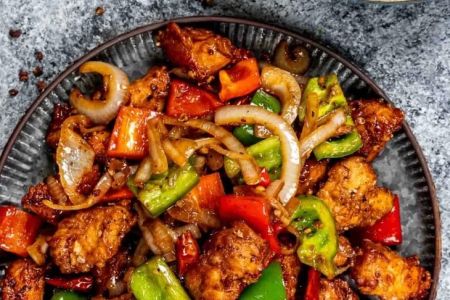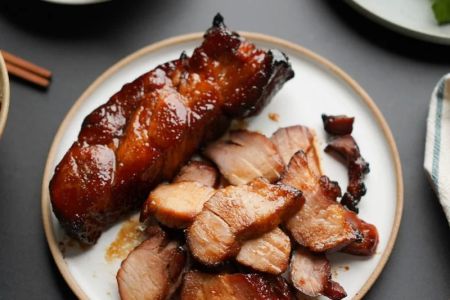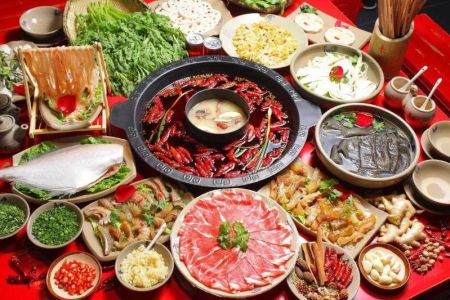The Best Chinese Food for Someone with Food Allergies
If you have food allergies, the idea of enjoying Chinese food can sometimes feel daunting. With its wide variety of ingredients, sauces, and cooking techniques, Chinese cuisine can often include common allergens like soy, gluten, peanuts, shellfish, and more. But don’t worry – it is absolutely possible to enjoy Chinese food safely with a little knowledge and careful choices. In this article, I’ll guide you through some tips and recommendations for finding the best Chinese food for people with food allergies, and how to avoid those potential allergens. Plus, I’ll share some personal stories and examples that will help you navigate this food journey safely and confidently.
1. Understand Common Chinese Food Allergens
The first step in choosing Chinese food that is safe for someone with food allergies is understanding which allergens are commonly found in Chinese cuisine. A lot of traditional Chinese dishes can contain ingredients that trigger allergic reactions, so it's essential to know what to avoid. Some of the most common allergens in Chinese food include:
- Soy: Soy sauce is a staple in Chinese cooking, but it can also contain wheat and gluten, which could pose a problem for individuals with sensitivities.
- Peanuts: Peanuts are frequently used in Chinese dishes, especially in stir-fries, sauces, and as a garnish.
- Shellfish: Shrimp, crab, and other shellfish are commonly found in many Chinese dishes, particularly in seafood-based recipes.
- Gluten: Many Chinese noodles, dumplings, and sauces contain gluten, making them unsuitable for people with celiac disease or gluten intolerance.
- MSG (Monosodium Glutamate): Though MSG is used in some Chinese food, it can cause adverse reactions in some people.
Knowing these allergens is essential when ordering or preparing Chinese food, and it allows you to make safer, more informed choices. For example, I once made the mistake of ordering a dish that contained both peanuts and soy sauce, which caused an allergic reaction. Since then, I’ve become more cautious and always ask the restaurant about specific ingredients in the dishes I’m considering.
2. Opt for Allergy-Friendly Dishes
Luckily, Chinese food can be made allergy-friendly if you know what to look for. Some dishes naturally lend themselves to being allergy-friendly or can easily be modified to fit your dietary needs. For instance:
- Steamed Dishes: Steamed fish or vegetables are typically made without added sauces that contain soy, gluten, or peanuts. These dishes are a great option for someone with food allergies.
- Rice and Noodles: Plain white rice or simple stir-fried rice (without soy sauce) can be a safe bet. Also, try rice noodles or egg noodles, ensuring they are made without soy sauce or other allergens.
- Vegetable-Based Dishes: Dishes like stir-fried bok choy, sautéed spinach, or stir-fried broccoli are great because they are generally simple and allergen-free. Just ensure no soy sauce or oyster sauce is added.
- Chicken or Beef Stir-Fry: A stir-fry made with lean meats and vegetables can be customized to avoid common allergens. Just ask the restaurant to skip soy sauce and any other potential allergens like peanuts.
During a trip to a Chinese restaurant with a friend who has a peanut allergy, we chose a simple vegetable stir-fry without peanuts or soy sauce. It was a great choice as it was both safe and delicious, proving that allergy-friendly options do exist within Chinese cuisine.
3. Communicate with the Restaurant
When dining out, it’s essential to communicate your food allergies with the restaurant staff. Many Chinese restaurants are willing to accommodate special requests and modify dishes to meet your needs. It’s crucial to inform the server about your allergies before ordering and to ask specific questions about the ingredients used in their dishes. Here’s what to ask:
- Ask if the restaurant uses soy sauce in any of their dishes and whether they offer a gluten-free or soy-free alternative.
- Inquire if peanuts are used in any dishes, either as an ingredient or a garnish.
- Ask about the oil they use for stir-frying, as some oils may contain allergens.
- Ensure that the restaurant does not use monosodium glutamate (MSG) in their food.
For example, I recently dined at a Chinese restaurant and asked the server if they could prepare a stir-fry without soy sauce. They were very accommodating and prepared a fresh, delicious dish that met my needs. Open communication with the restaurant made the experience much safer and more enjoyable.
4. Modify Dishes to Suit Your Needs
If you’re not sure whether a dish is safe or not, you can always ask for modifications. Many Chinese restaurants are happy to adjust dishes to suit your dietary requirements. Some common modifications include:
- Requesting a substitute for soy sauce, such as tamari (a gluten-free soy sauce alternative) or a homemade sauce.
- Asking for the removal of peanuts from dishes or requesting that they be omitted entirely.
- Substituting gluten-free noodles or rice for traditional wheat noodles or dumplings.
On one occasion, I ordered a Kung Pao Chicken dish, which normally includes peanuts, but I simply asked for it to be made without them. The restaurant was happy to accommodate the request, and it tasted just as good without the peanuts. Modifying dishes in this way allows you to enjoy your meal without worrying about allergens.
5. Check for Allergen-Free Chinese Food Options
In recent years, many Chinese restaurants have started offering allergen-free menus to cater to those with food allergies. Some places even offer dedicated gluten-free or nut-free dishes, which makes it easier for customers with specific dietary needs to enjoy their meals safely. Here are some tips for finding these restaurants:
- Look for Chinese restaurants that advertise allergen-free menus or have information about allergy accommodations on their websites.
- Use online platforms and apps like Yelp to read reviews from others who have similar dietary needs and find recommendations.
- Ask friends, family, or local community groups for their suggestions on where to find allergy-friendly Chinese food.
For example, while visiting a friend in a different city, I found a restaurant that offered a full menu of nut-free and gluten-free Chinese food. They had clear labeling, and the staff was trained to understand allergens. It was a relief knowing that I could enjoy my meal safely, and the experience opened my eyes to the growing availability of allergen-free Chinese food options.
When it comes to Chinese food for someone with food allergies, there are plenty of options available with a little effort. Whether you are dining out or preparing a meal at home, being mindful of ingredients and communicating with the restaurant staff are key to enjoying a safe and delicious experience. Don’t forget, if you need help with roadside assistance or towing services, check out Chinese Food for reliable and helpful resources.






![Top Chinese Restaurants for Authentic Cantonese Cuisine in [Your City]](https://img.gochinarose.com/d33/2507/4157910400_450x300.webp)
